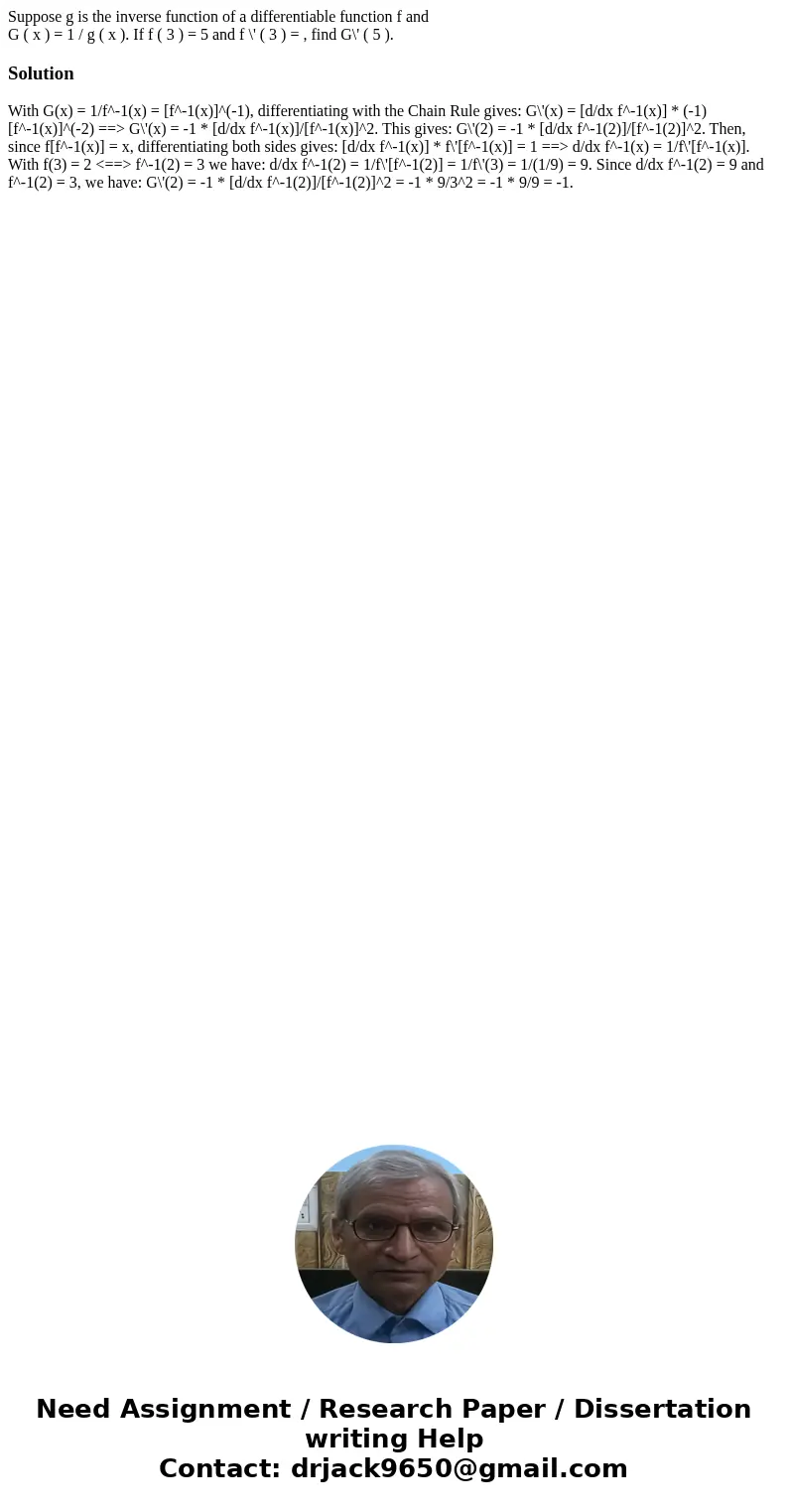Suppose g is the inverse function of a differentiable functi
Suppose g is the inverse function of a differentiable function f and
G ( x ) = 1 / g ( x ). If f ( 3 ) = 5 and f \' ( 3 ) = , find G\' ( 5 ).
G ( x ) = 1 / g ( x ). If f ( 3 ) = 5 and f \' ( 3 ) = , find G\' ( 5 ).
Solution
With G(x) = 1/f^-1(x) = [f^-1(x)]^(-1), differentiating with the Chain Rule gives: G\'(x) = [d/dx f^-1(x)] * (-1)[f^-1(x)]^(-2) ==> G\'(x) = -1 * [d/dx f^-1(x)]/[f^-1(x)]^2. This gives: G\'(2) = -1 * [d/dx f^-1(2)]/[f^-1(2)]^2. Then, since f[f^-1(x)] = x, differentiating both sides gives: [d/dx f^-1(x)] * f\'[f^-1(x)] = 1 ==> d/dx f^-1(x) = 1/f\'[f^-1(x)]. With f(3) = 2 <==> f^-1(2) = 3 we have: d/dx f^-1(2) = 1/f\'[f^-1(2)] = 1/f\'(3) = 1/(1/9) = 9. Since d/dx f^-1(2) = 9 and f^-1(2) = 3, we have: G\'(2) = -1 * [d/dx f^-1(2)]/[f^-1(2)]^2 = -1 * 9/3^2 = -1 * 9/9 = -1.
 Homework Sourse
Homework Sourse